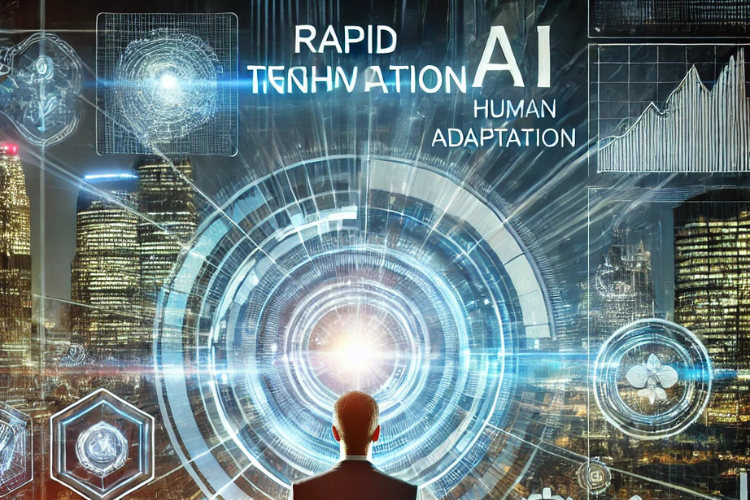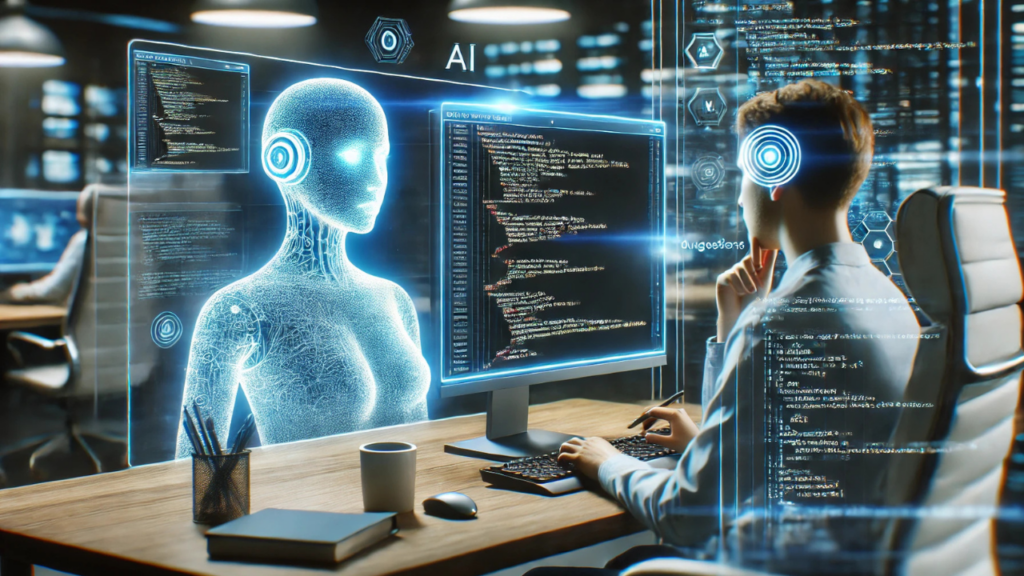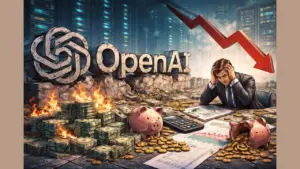Introduction
Artificial intelligence (AI) is reshaping industries worldwide. From automation in manufacturing to AI-driven chatbots in customer service, AI is making processes faster and more efficient. The software development industry is no exception. AI-powered tools like GitHub Copilot, ChatGPT, and DeepCode assist developers in writing code, debugging, and automating repetitive tasks.
This has led to a common misconception: Will AI replace software developers entirely?
The short answer is no. AI is a powerful tool, but it lacks creativity, problem-solving skills, adaptability, and human intuition—all essential qualities for software development. While AI can assist in coding, it cannot design complex systems, understand user needs, or innovate the way human developers do.
In this blog, we’ll explore five key reasons why AI will not replace developers and why human expertise remains irreplaceable in software engineering.
5 Reasons Why Developers Are Still Essential
1. AI Can Automate Tasks, But Not Creativity
AI is excellent at automating repetitive tasks. It can generate boilerplate code, conduct unit testing, and suggest bug fixes. However, software development is much more than just writing code—it involves:
- Understanding user needs
- Creating intuitive and user-friendly interfaces
- Designing scalable and secure systems
- Solving real-world business problems
AI operates based on existing data and patterns. It cannot think creatively or invent new solutions the way human developers do.
For example, AI might generate a function to sort a list based on predefined algorithms. However, if an application needs a custom sorting mechanism optimized for performance, a human developer must step in to design the best solution.
AI can generate code based on existing examples, but it cannot create new frameworks, programming paradigms, or innovative architectures. Developers drive progress by thinking outside the box and creating new technologies.
2. AI Lacks True Problem-Solving Abilities
Programming is not just about writing code—it’s about solving problems. AI can follow instructions, but it cannot analyze complex challenges the way human developers can.
A software engineer’s job includes:
- Debugging unexpected issues
- Refactoring messy and outdated codebases
- Optimizing software performance
- Enhancing security and preventing vulnerabilities
AI-generated code might look clean, but it often lacks context and deeper understanding. AI cannot predict potential future problems or consider long-term software maintainability.
For example, if a financial application starts producing incorrect calculations due to rounding errors, AI might suggest fixing individual functions. However, a human developer would analyze the root cause and implement a system-wide solution to prevent future errors.
This problem-solving ability is what makes human developers indispensable.
3. AI Struggles with Unpredictable Scenarios
Software applications must handle real-world scenarios—many of which are unpredictable. AI is trained on existing data, meaning it cannot think dynamically or handle unexpected situations effectively.
For example, consider an AI-generated chatbot. It may respond well to common queries but fail in cases where:
- The user asks a vague or sarcastic question
- There is an unexpected input that wasn’t in the training data
- A user requests a feature that the AI cannot understand
Similarly, in software development, applications must handle:
- Security threats and cyber attacks
- Changing business requirements
- Scaling issues in high-traffic applications
AI-generated code may work well under ideal conditions, but real-world applications rarely function in a perfect environment. Developers must constantly adapt and refine software to keep it reliable, secure, and efficient.
4. AI is a Tool, Not a Replacement
AI tools like GitHub Copilot, ChatGPT, and Code Whisperer are designed to assist developers, not replace them. These tools increase productivity by:
- Automating repetitive coding tasks
- Generating code suggestions
- Providing documentation
- Identifying potential bugs
However, AI-generated code often lacks optimization, security, and maintainability. A skilled developer must:
- Review and refine AI-generated code
- Ensure it follows best practices
- Optimize it for performance and security
Relying solely on AI-generated code is risky. AI does not understand business logic, user experience, or ethical concerns. A human developer ensures that software is functional, ethical, and meets user needs.
Example: Imagine a healthcare application that requires highly accurate patient data processing. AI might generate a functional algorithm, but a developer must verify that it follows data privacy laws (HIPAA, GDPR) and ensures accuracy in medical calculations.
AI is a powerful tool, but it cannot replace the experience, critical thinking, and responsibility of a human software engineer.
5. The Rapidly Changing Tech Industry Requires Human Adaptability
Technology evolves faster than AI models can learn. New frameworks, security protocols, and programming languages emerge frequently. Developers must continuously learn and adapt to stay relevant.

AI operates on historical data, meaning it cannot proactively learn new technologies without human intervention. Developers, on the other hand, can:
- Research emerging trends
- Experiment with new tools and frameworks
- Adopt best practices for modern software development
For example, when blockchain technology emerged, developers had to:
- Learn cryptographic principles
- Build secure smart contracts
- Optimize decentralized applications
AI couldn’t predict or drive this shift. Human developers led the innovation.
Similarly, the rise of quantum computing, edge computing, and AI ethics requires critical thinking and research—skills only humans possess.
To stay competitive, developers must embrace AI as a collaborative tool, not a replacement.
Conclusion
AI is transforming software development, but it will never replace human developers. AI tools assist with coding, automate repetitive tasks, and enhance efficiency, but they lack creativity, adaptability, and deep problem-solving skills.
A skilled developer doesn’t just write code; they design, innovate, and solve complex problems. AI operates on existing data, but human expertise drives technology forward.
The future of software development lies in collaboration between AI and human developers. Instead of fearing AI, developers should use it to enhance their productivity and focus on higher-level problem-solving and innovation.
At StartupHakk, we believe that skilled developers will always be in demand. AI is a game-changer, but human creativity, adaptability, and expertise remain irreplaceable. The key to success is to embrace AI while continuously improving technical skills.




